-
Lord Arbuthnot and the Lies
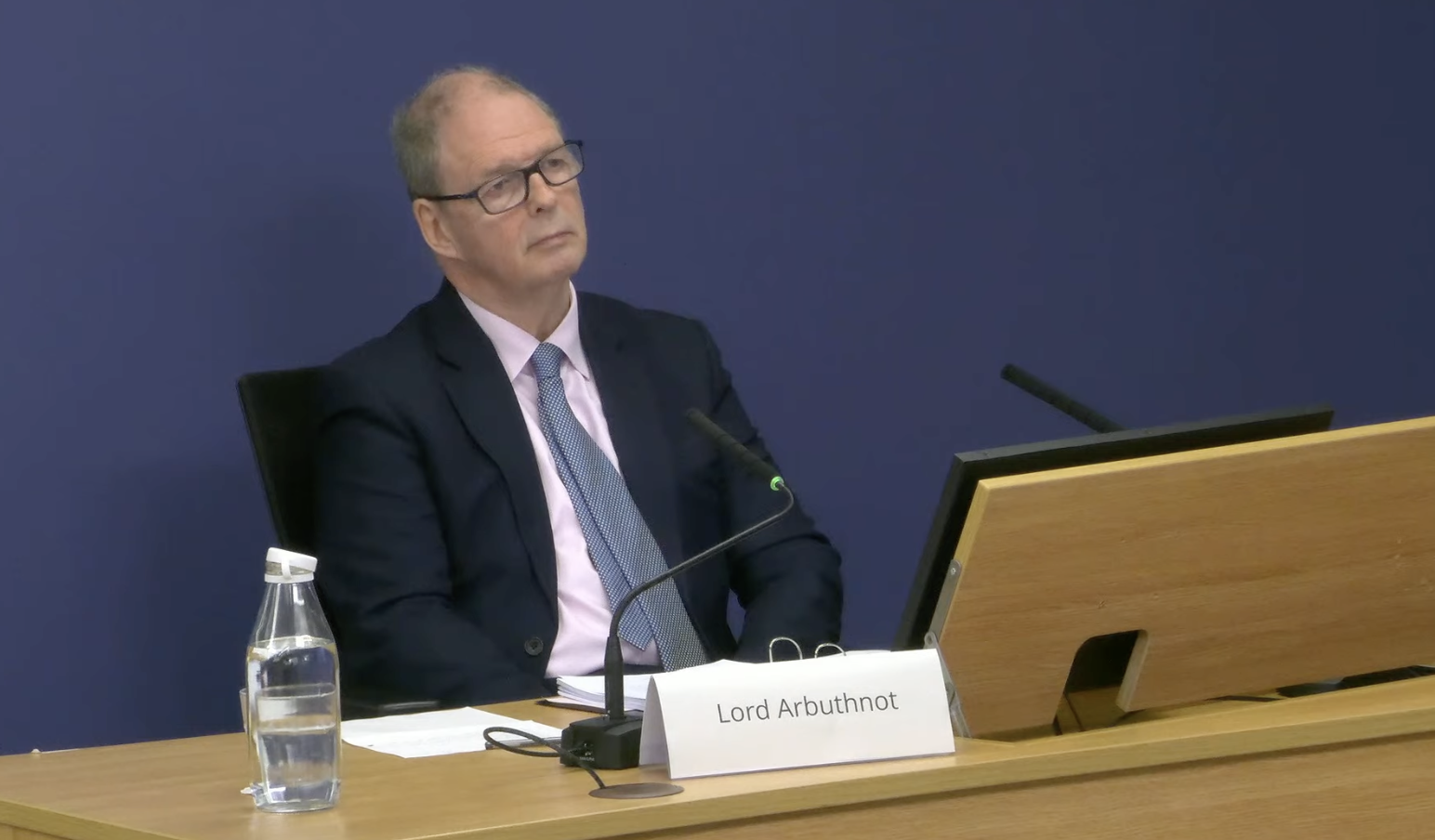 Read More…: Lord Arbuthnot and the Lies
Read More…: Lord Arbuthnot and the LiesThe former MP who started the Parliamentary campaign to help Subpostmasters in their fight for justice, gave evidence at the public inquiry into the Post Office Horizon IT scandal on Wednesday. James Arbuthnot told inquiry he was first alerted to potential problems with the Horizon system during a coffee morning in his constituency, in 2009, when he was introduced the former sub postmaster Jo Hamilton. Arbuthnot at first attempted to raise Hamilton’s case with the government, specifically the Secretary of State for Business, Peter (now Lord) Mandelson. Arbuthnot received a “frustrating” response from Mandelson’s junior, Pat McFadden, effectively washing the…
-
Phase 5 & 6 curtain-raiser: Alan the Man
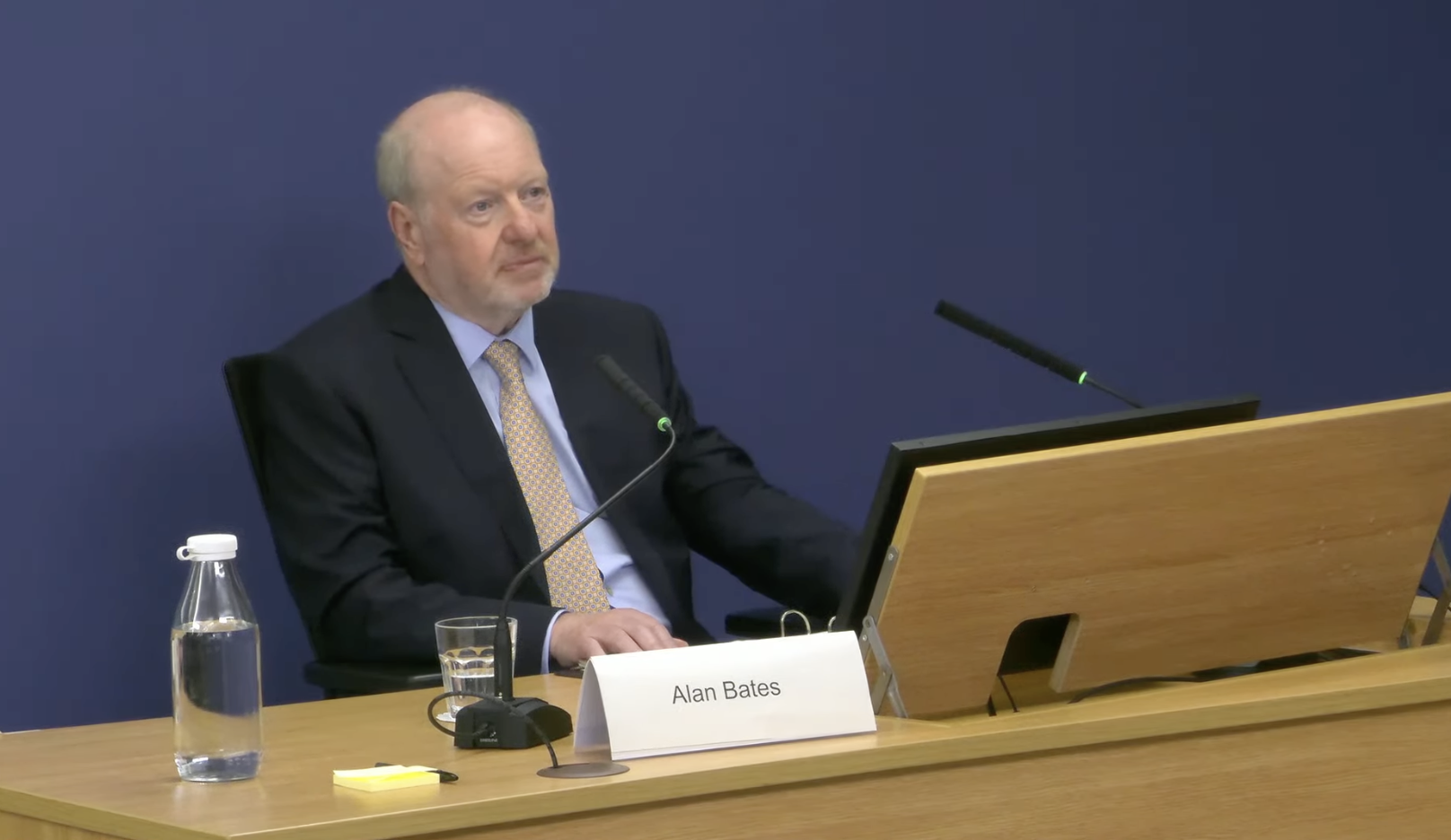 Read More…: Phase 5 & 6 curtain-raiser: Alan the Man
Read More…: Phase 5 & 6 curtain-raiser: Alan the ManFounder of the justice for Subpostmaster alliance Alan Bates today gave evidence to the public inquiry into the Post Office Horizon IT scandal. The Inquiry has resumed withafter a five week break, and is now entering a four month period of hearings, combining phases five and six of the planned seven phases. Phases 5 & 6 will take in the 2013 Complaint Review and Mediation Scheme, conduct of the group litigation, governance, stakeholder engagement, oversight and whistleblowing, amongst many other matters. Disclosure failings again The proceedings were prefaced by a short introduction from the Inquiry’s lead barrister Jason Beer KC…
-
PR Week puts departed Post Office Comms Director in its “Power” Book
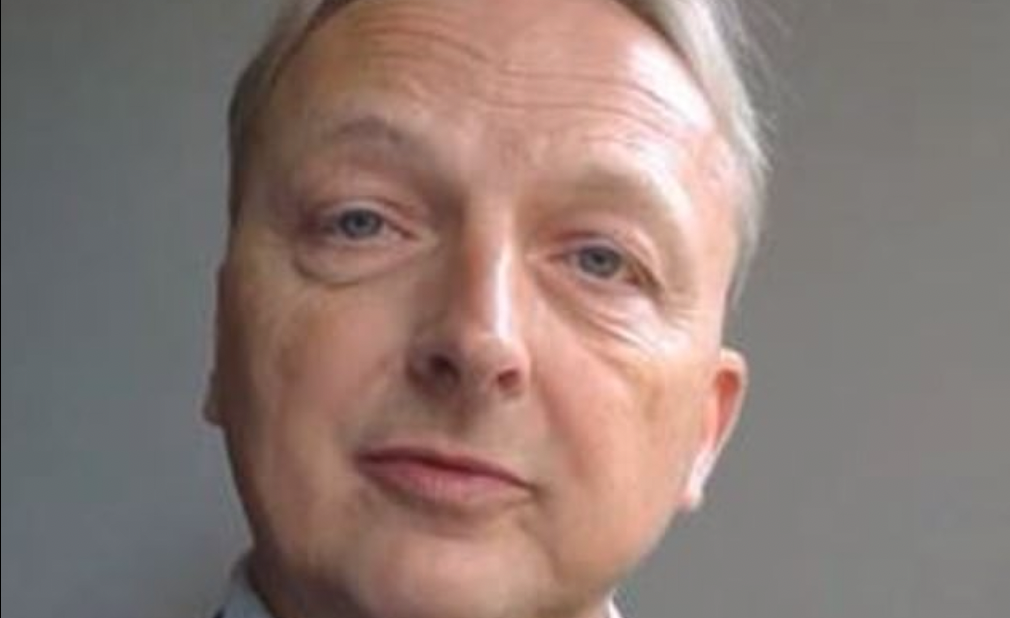 Read More…: PR Week puts departed Post Office Comms Director in its “Power” Book
Read More…: PR Week puts departed Post Office Comms Director in its “Power” BookOn Tuesday 27 February, the Post Office’s Director of Communications, Richard Taylor, left the Post Office. He had been suspended since 12 January after two recordings of him were made public by TalkTV. Curiously he has just been included in PR Week’s Power Book 2024, which celebrates “the most influential and respected comms professionals in the UK today”. In the Post Office Tapes, recorded in 2020 and 2021, Taylor insinuated many of the campaigning Subpostmasters were thieves. Specifically, he said: RT: “We give you… £30,000 pounds in cash to stick in a safe. And the problem with £30,000 in cash…
-
Chris’s Compensation Solutions
 Read More…: Chris’s Compensation Solutions
Read More…: Chris’s Compensation SolutionsAfter yesterday’s parliamentary debate on Postmaster Compensation, former Subpostmaster Chris Head came up with his solutions for sorting everything out in a timely manner. Chris is a member of the Group Litigation Order (GLO) scheme, announced in 2022, by the (then) Postal Affairs Minister Paul Scully. For the last four years, however, Chris has been helping other Subpostmasters find their way around the mess surrounding the compensation schemes whilst working with Dan Neidle to expose their flaws. Chris posted his thoughts on twitter yesterday, I have edited and reformatted them for clarity and published them, with his permission, below: HSS…
-
Staunton shoots back
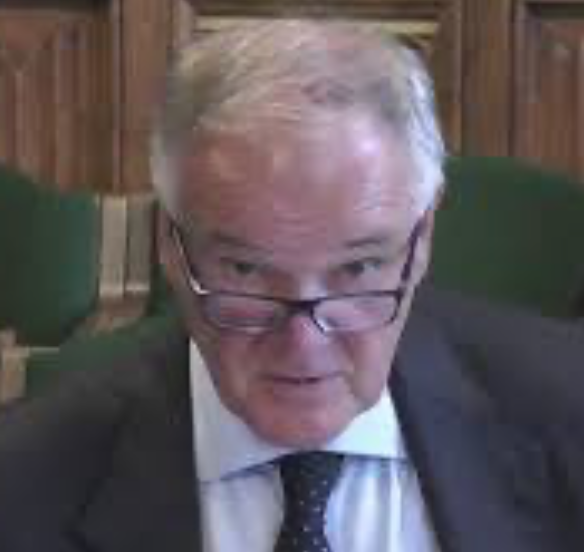 Read More…: Staunton shoots back
Read More…: Staunton shoots backOn 18 Feb, the Sunday Times published this extraordinary interview with Henry Staunton, the sacked chair of the Post Office. Staunton said there was a “toxic” culture within the Post Office, alleged that the government had told him to go slow on compensation payments and that the Post Office CEO had written to the Business department saying that hundreds of Postmasters prosecuted by the Post Office were “guilty as charged”. It was followed in Monday’s Times with a story reporting that the Subpostmaster members on the Post Office board felt “ignored and unwanted”. At 4.18pm on 19 Feb, an outraged…
-
The unredacted Project Sparrow board minutes
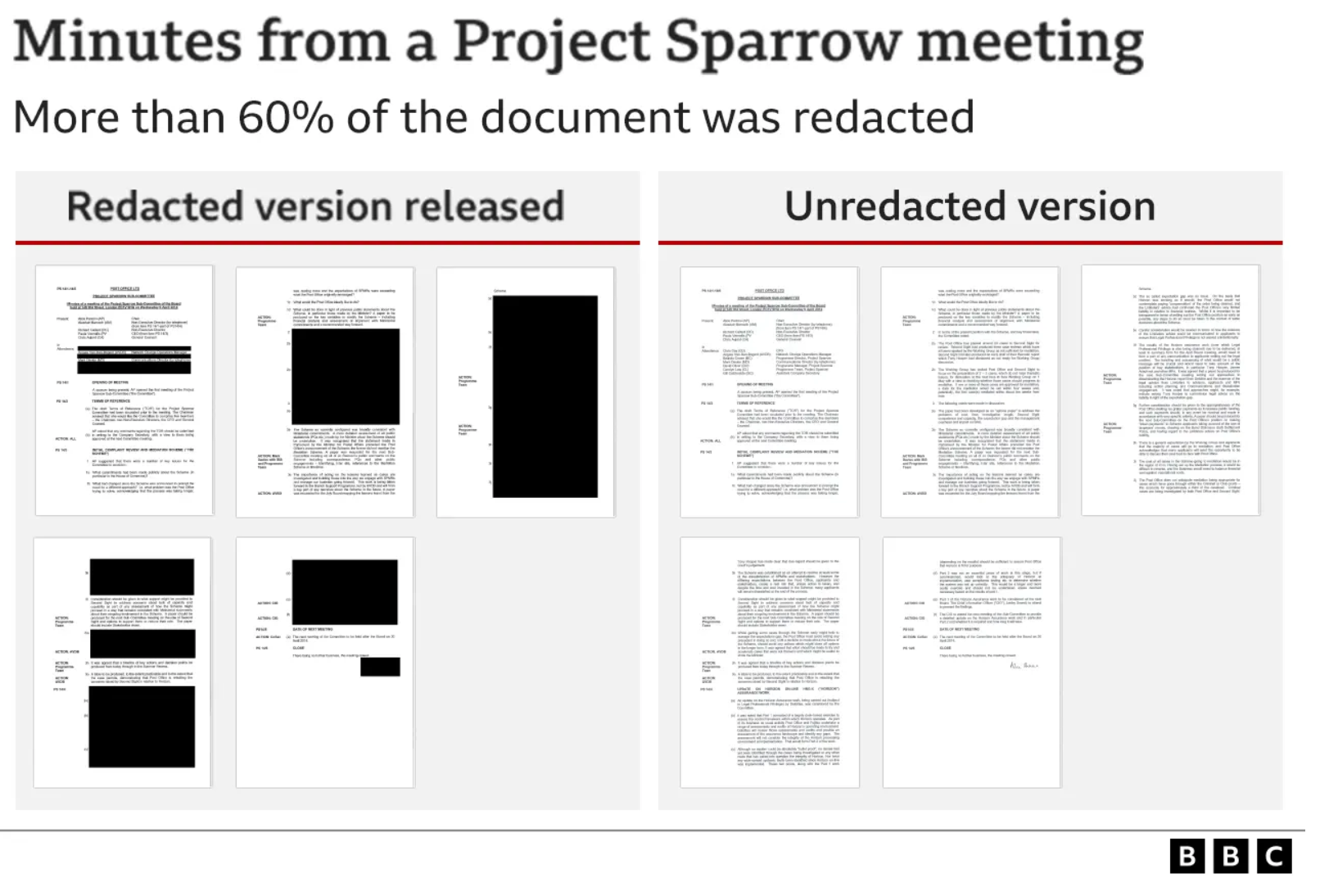 Read More…: The unredacted Project Sparrow board minutes
Read More…: The unredacted Project Sparrow board minutesOn 26 Jan the BBC’s excellent economics correspondent Andy Verity published a story. Andy had eyes on two confidential Post Office documents which had previously only been published under FOI in heavily-redacted form. They were Project Sparrow board sub-committee meeting minutes from 9 and 30 April 2014. Project Sparrow was the codename given by the Post Office to its interactions with the Justice for Subpostmasters Alliance, MPs and Second Sight (independent investigators) between 2013 and 2015. During the 2018 group litigation Bates v Post Office at the High Court, the Post Office tried to claim the name “Project Sparrow” was…
-
What’s really going on with the Subpostmaster compensation schemes pt. 3
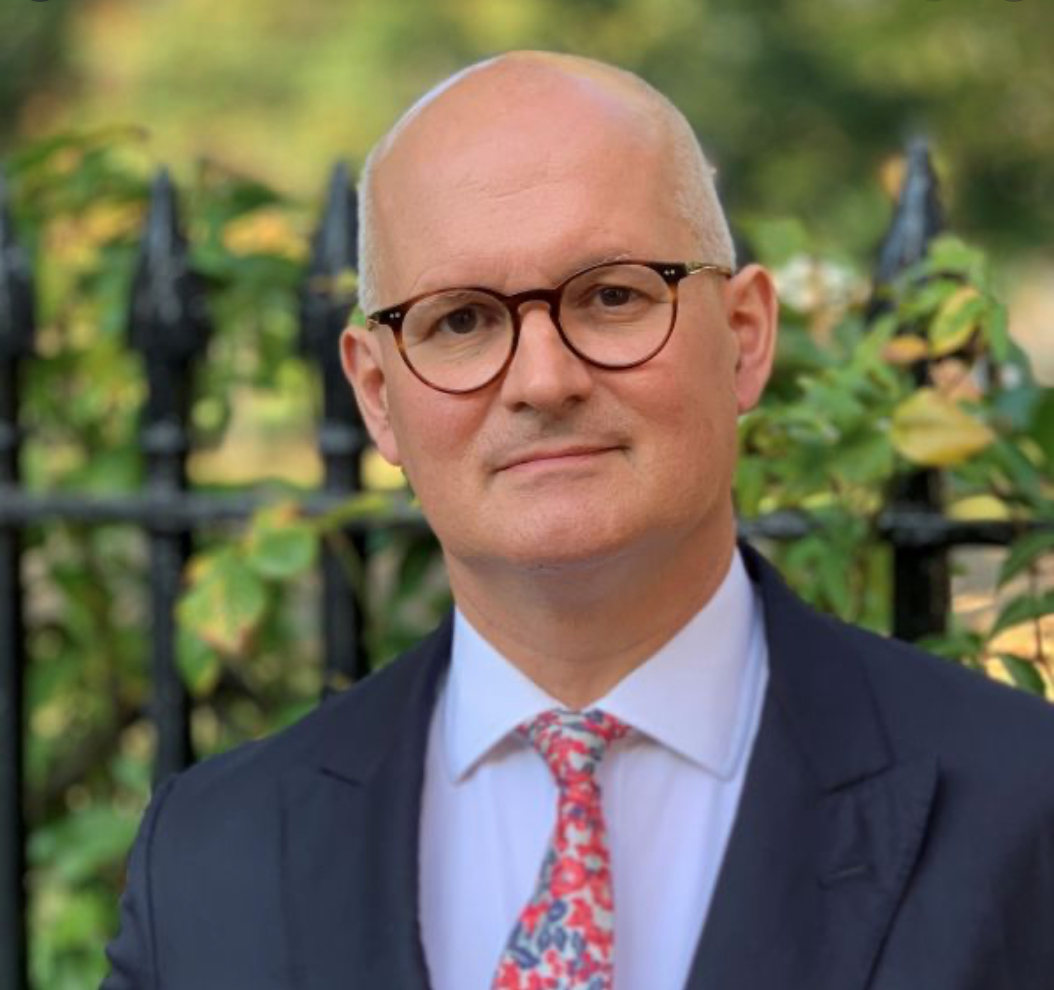 Read More…: What’s really going on with the Subpostmaster compensation schemes pt. 3
Read More…: What’s really going on with the Subpostmaster compensation schemes pt. 3This short series of blog posts reveals the contents of a letter sent by the barrister Paul Marshall to the Post Office Horizon Inquiry. The letter shares Marshall’s concerns at the Post Office/Government compensation schemes and the way they are being run. It was written on 9 January 2024. Part 1 deals with the section of the letter which addressed the problems being suffered by Subpostmaster claimants in the Bates v Post Office High Court litigation with overturned criminal convictions. Part 2 deals with what Marshall calls the “complete absence of any principled approach to interim payments”. This final part…
-
What’s really going on with the Subpostmaster compensation schemes pt. 2
 Read More…: What’s really going on with the Subpostmaster compensation schemes pt. 2
Read More…: What’s really going on with the Subpostmaster compensation schemes pt. 2In Part 1 of this short series I quoted at length from a letter written to the Post Office Horizon IT Inquiry on 9 Jan 2024, by the barrister Paul Marshall. That blog post covered Mr Marshall’s concerns about Subpostmaster claimants in the Bates v Post Office High Court litigation with overturned criminal convictions. The following blog post quotes from the same letter. In this instance Marshall is concerned with what he describes as the “complete absence of any principled approach to interim payments”. It is another lengthy extract, but it makes clear an invidious and unfair situation. The only…
-
What’s really going on with the Subpostmaster compensation schemes pt. 1
 Read More…: What’s really going on with the Subpostmaster compensation schemes pt. 1
Read More…: What’s really going on with the Subpostmaster compensation schemes pt. 1I’ve obtained a letter to Sir Wyn Williams, written by the barrister Paul Marshall. Sir Wyn is the retired judge who chairs the Post Office Horizon IT Inquiry. Paul Marshall represents, in his words, “some of those most grievously affected by the Post Office’s conduct”. The letter is dated 9 January 2024. Whilst recent government announcements, prompted by an ITV drama series, may come to supersede some the concerns expressed in the letter, we should bear in mind that Marshall was writing more than four years after the Bates v Post Office High Court settlement which set in motion the…
-
Podcast: Scully calls for Vennells to be stripped of CBE
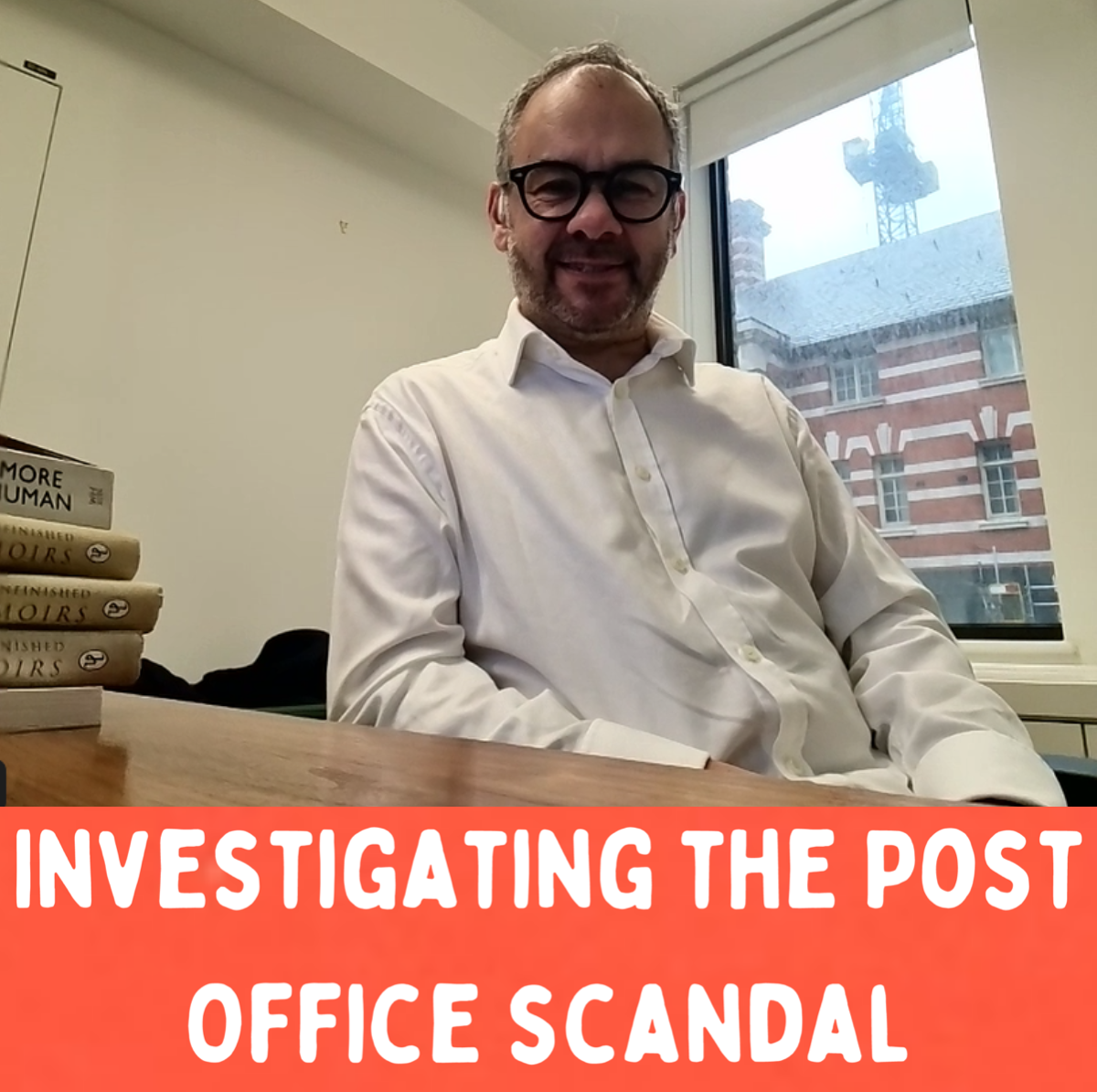 Read More…: Podcast: Scully calls for Vennells to be stripped of CBE
Read More…: Podcast: Scully calls for Vennells to be stripped of CBEIn his first interview on the subject since leaving government, Paul Scully MP says former Post Office Chief Executive (2012 – 2019) Paula Vennells should “absolutely” lose her CBE which was awarded to her in the 2019 New Year’s Honours list. “I’m a backbench MP now so I can say what I want, I think, reasonably. I think people do need to be held to account and that it includes Paula Vennells…. From what I see of it, the tactics used by the Paula Vennells-led Post Office were pretty horrendous and people need to be held to account.” Scully also…
Archives
- ▼2025
Most Popular
Tags
Alan Bates alice perkins Alwen Lyons Andrew Winn Andy Dunks Andy Parsons Bates v Post Office Bonusgate CCRC Chris Aujard Clarke Advice False Accounts Fujitsu Gareth Jenkins Grabiner HCAB Horizon Hugh Flemington Inquiry Interim Report Janet Skinner Jarnail Singh Kevin Hollinrake Lee Castleton Lord Arbuthnot Nicki Arch Nick Read Noel Thomas Paula Vennells Paul Marshall Post Office Rebecca Thomson Receipts and Payments mismatch bug Richard Moorhead Rob Wilson Rod Ismay Rodric Williams Second Sight Seema Misra ShEx Simon Clarke Susan Crichton Swift Review Tracy Felstead UKGI
Categories
- Appeals (18)
- Blog (17)
- Book (11)
- Civil litigation (47)
- Compensation (42)
- Corporate (23)
- Fujitsu (31)
- Inquiry (119)
- IT (40)
- Live Events (6)
- Podcast (7)
- Police investigation (12)
- Prosecutions (47)
